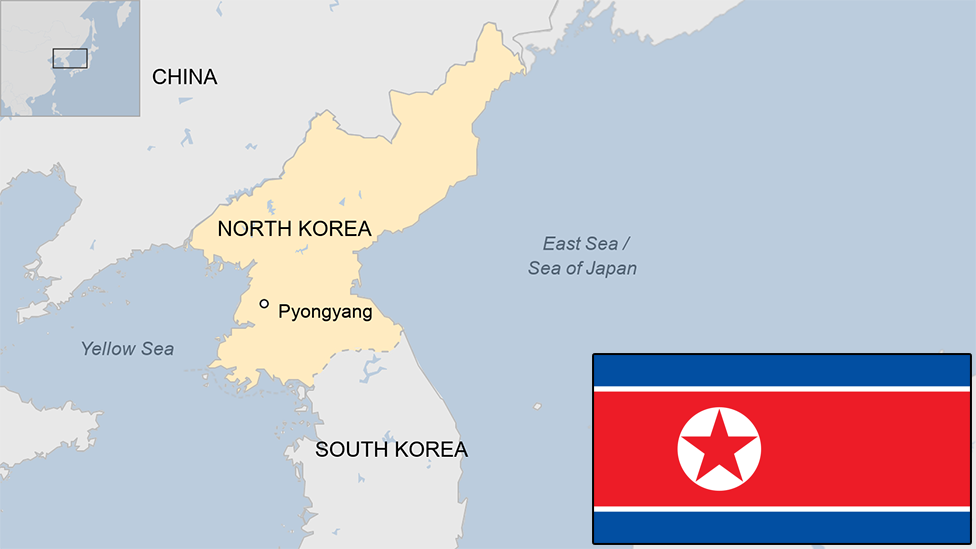North Korea: Searching for self-reliance and 'real people' in Pyongyang
- Published
Rupert Wingfield-Hayes reports from North Korea's capital Pyongyang
This article was originally published on 2 May but we removed it from the site in the interests of our staff while they were in North Korea. We are now republishing it.
A team from the BBC is making a rare visit to North Korea organised by the Vienna-based International Peace Foundation (IPF). The team is joining a delegation of three Nobel laureates and a European prince. The BBC's Rupert Wingfield-Hayes reports from Pyongyang.
Our three Nobel Laureates are on their minibus, we are on ours, surrounded by four or five minders - it's hard to keep count. We are heading for the Monument to the Juche Idea, an enormous phallic stone construction rising 170m (560ft) from the south bank of the Taedong river in the centre of Pyongyang.
Juche is the central guiding ideology of this country, except it's not really an ideology.
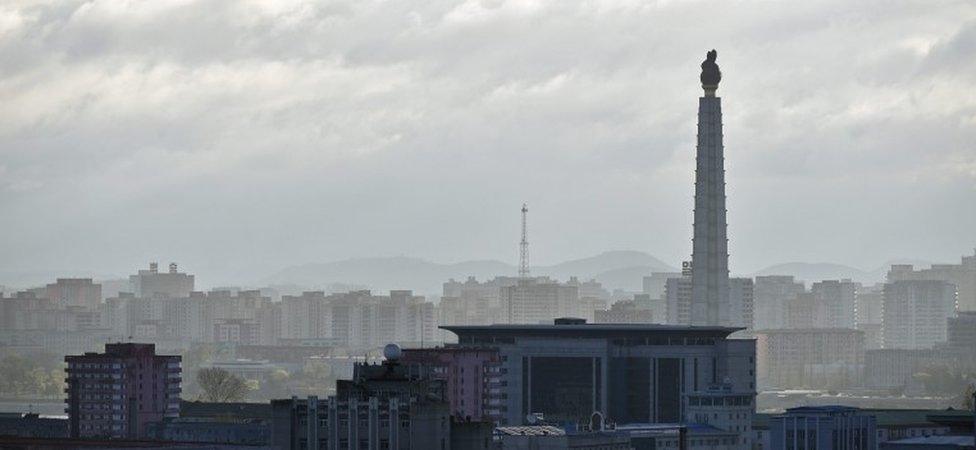
It roughly translates as "self-reliance" - the idea that the Democratic People's Republic of Korea doesn't need help from other countries, that it can develop into a modern nation by itself.
Except, of course, it can't.
'Great Marshal'
North Korea may have built a nuclear bomb and long-range rockets, but not without help. Almost everything modern you see comes from China - the mobile phones, computers, cars. The government can barely feed its own people.
But there is money here, more than there was 12 years ago when I last visited.
From atop the tower we look across the river to Kim Il-sung square. It is filled with colourfully clad crowds practising mass dancing.
"What are they celebrating?" I ask Mr Kim.
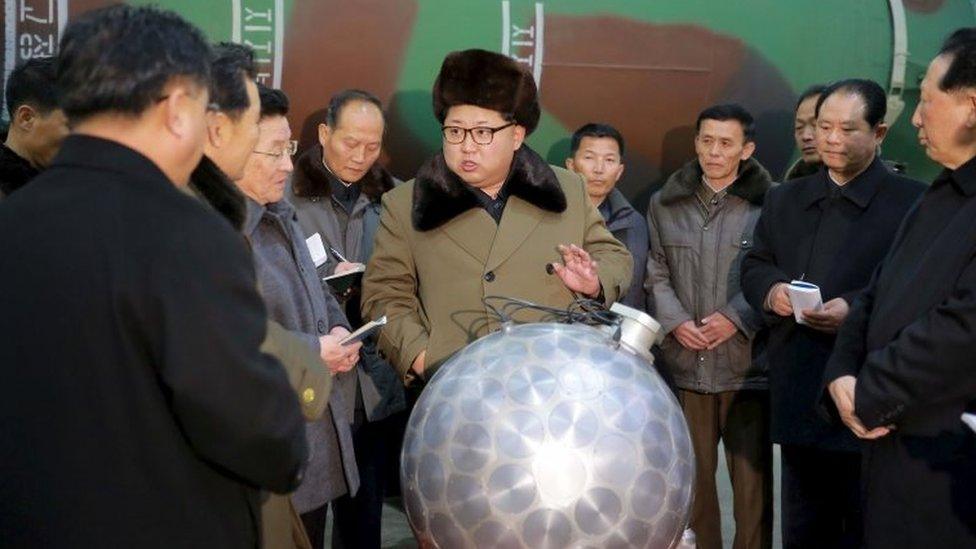
Kim Jong-un recently posed next to what the North said was a model of its miniaturised hydrogen bomb - there is widespread scepticism that it has such a weapon
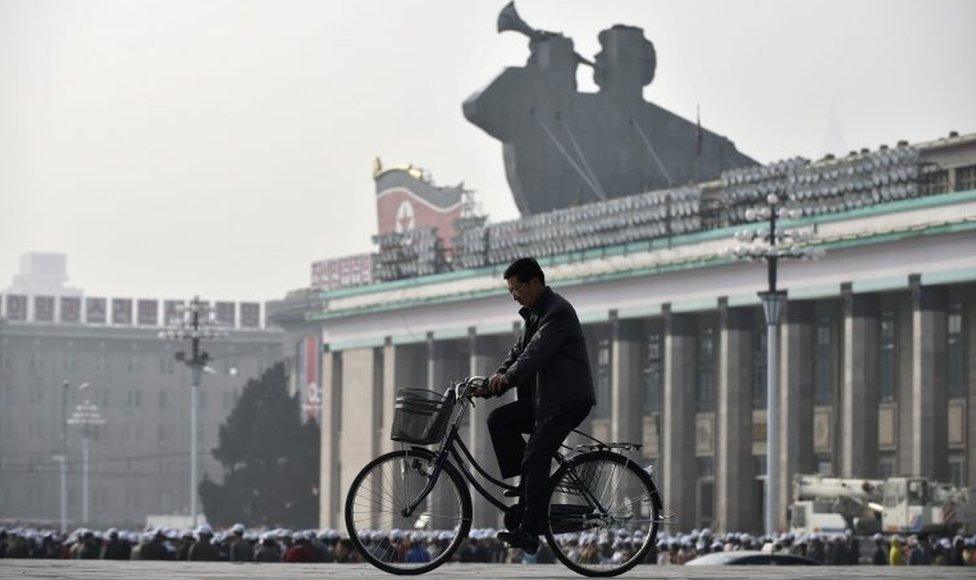
The Workers Party will hold only its seventh-ever Congress in this building later this week
All of our minders seem to be called Mr Kim.
"They are practising for the Party Congress," he answers.
Next Friday, in a huge grey marble edifice in the centre of Pyongyang, the Seventh Congress of the Korean Workers Party will open. The sixth congress was held more than 35 years ago, so this is going to be a big deal.
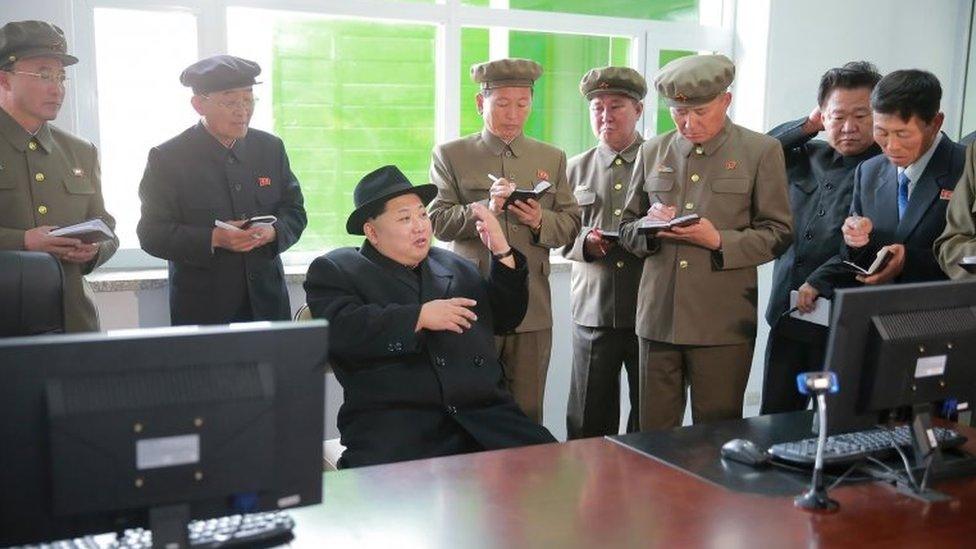
Kim Jong-un is often seen in officials photographs giving advice on industrial or military developments
Our minders already refer to Kim Jong-un, the 30-something dictator, as "The Great Leader Marshal Kim Jong-un".
What exactly he's done to deserve the title Marshal is hard to say. On state TV the young ruler seems to spend a lot of time sitting in a large chair watching artillery firing at mountainsides.

Building bridges
The academics' visit to North Korea has been organised by the Vienna-based International Peace Foundation (IPF).
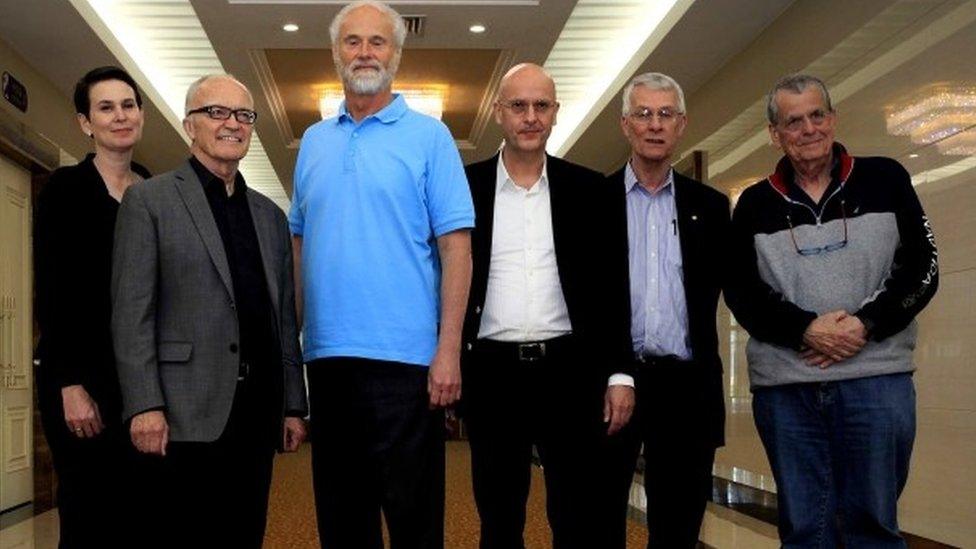
Prince Alfred (third left) and the delegation of Nobel laureates on arrival in Pyongyang
Those taking part are from second left to right:
Nobel laureate for economics Prof Finn Kydland from Norway, who works at the University of California in Santa Barbara.
Prince Alfred of Liechtenstein, who chairs the IPF's advisory board.
IPF chairman Uwe Morawetz, who has visited North Korea six times in the past two years.
Nobel laureate for medicine Sir Richard Roberts from the UK, who is based at New England Biolabs in Ipswich, Massachusetts.
Nobel laureate for chemistry Prof Aaron Ciechanover from the Technion Israel Institute of Technology in Haifa.

These sorts of trips are exhausting. We are constantly in a rush.
"Hurry, hurry," Mr Kim shouts at me. "The children are waiting at the hospital. We don't have time."
I'm trying to interview one of the Nobel laureates, Sir Richard Roberts, and our minders don't like it.
"We have not time, quickly the bus is leaving!"
"Not without me it isn't," Sir Richard remarks dryly, a sly smile on his face.
Model people?
Everyone likes to put their best face to the world, and hide their ugly side. But North Korea takes it to a different level.
Being here reminds me a lot of working in China in the 1990s. We are whisked from a "model" children's hospital to a shiny indoor water park and on to a vast glass and steel science park.
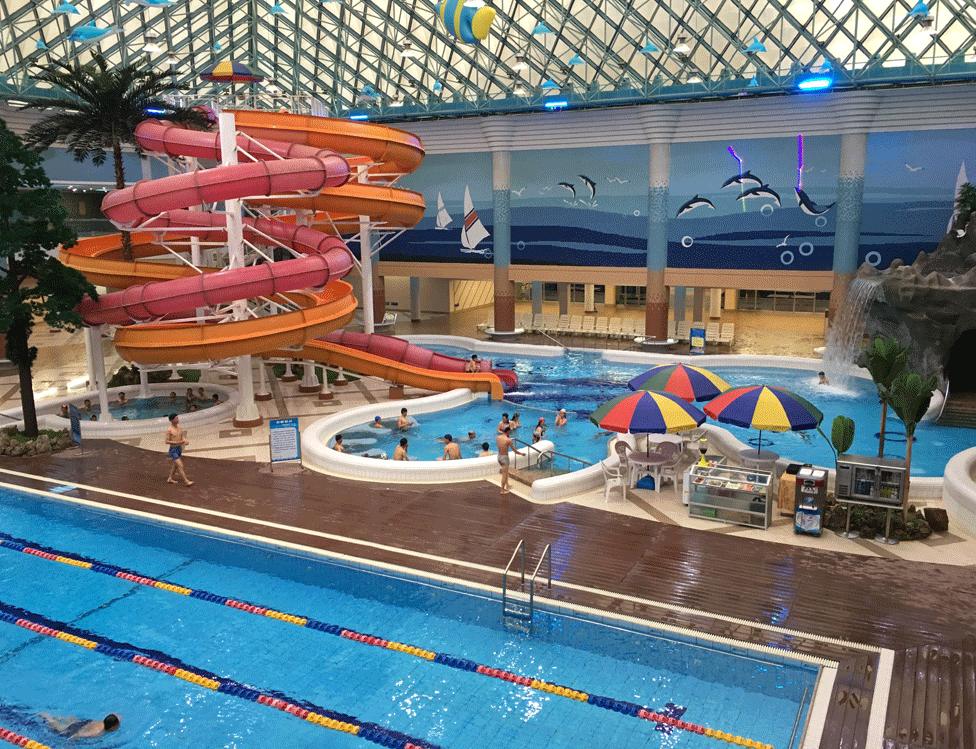
The indoor water park in the capital - but where were all the people to talk to?
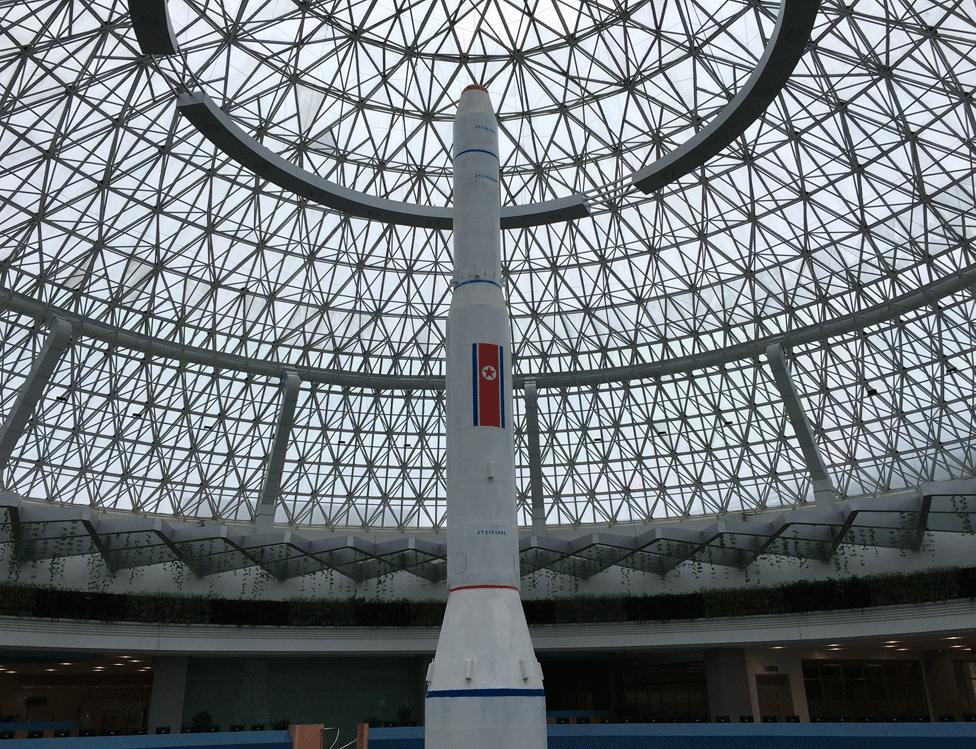
A rocket in the shiny science museum
At the hospital we are shown a million-dollar CT scanner. The science park library is crammed with row upon row of new computer terminals, hundreds of them.
But everywhere we go is oddly devoid of any "real" looking people. The hospital is virtually empty. In one room, a group of tiny pyjama-clad children are exercising on gym equipment designed for adults.
They look bemused, and so are we.
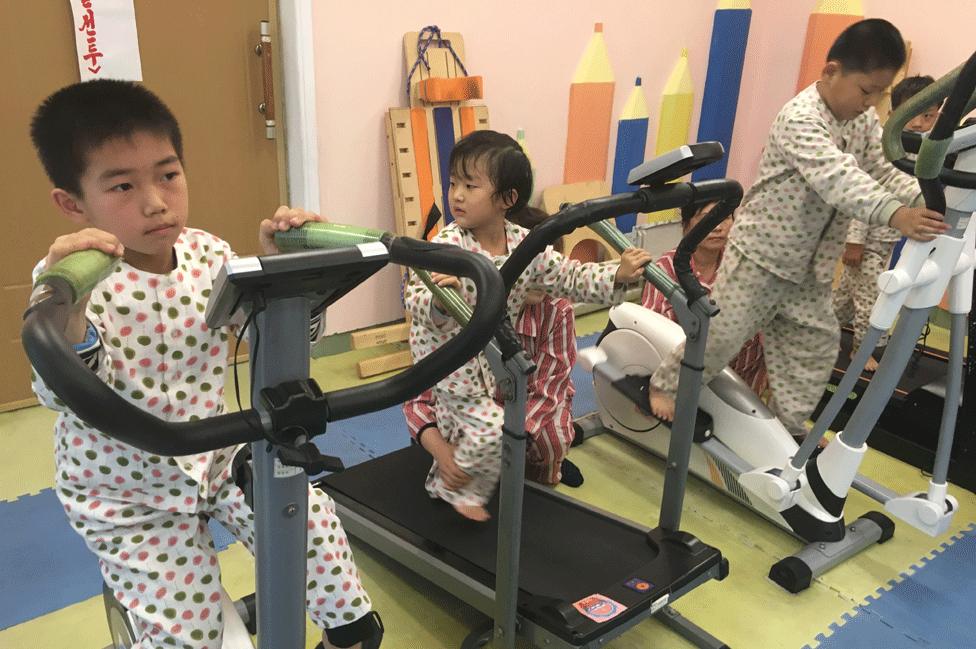
The children in hospital seemed unsure what was going on
One of our Nobel laureates, Aaron Ciechanover from Israel, is a medical doctor. He wants to ask the doctors here about childhood cancer treatment. The white-robed staff look confused. Prince Alfred of Liechtenstein is starting to have his suspicions.
"I don't think these are real doctors," he tells the interpreter. "Can we find some real doctors for the Nobel laureates to talk to?"
- Published30 April 2016
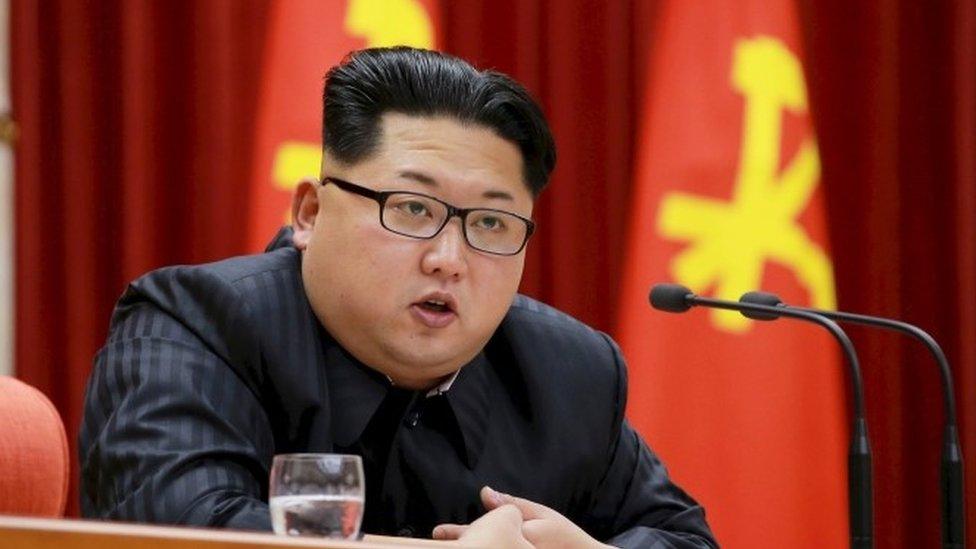
- Published1 May 2016
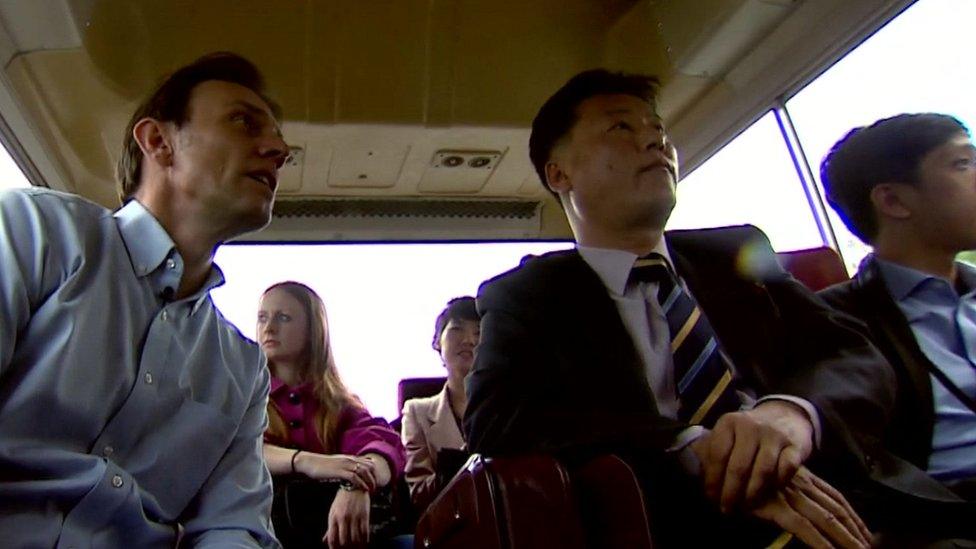
- Published30 April 2016
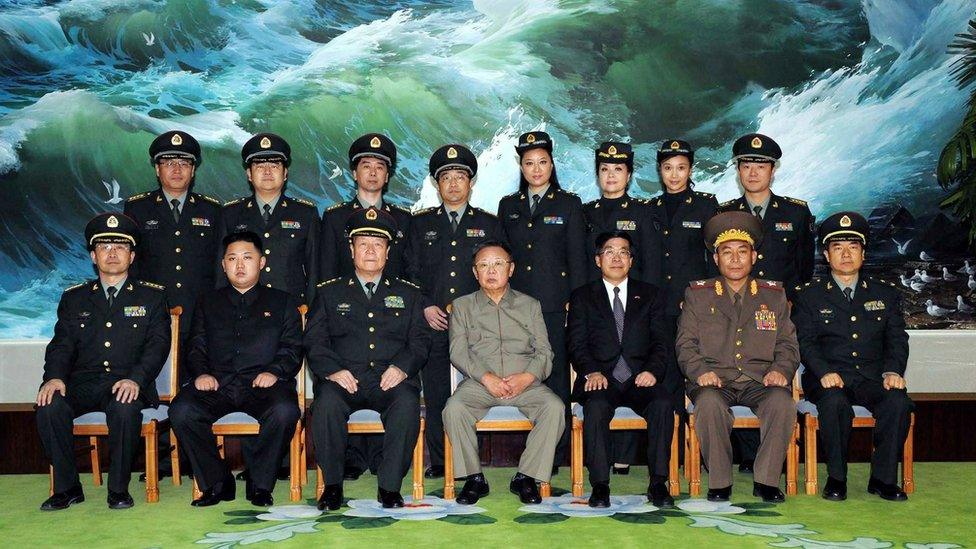
- Published11 September 2023
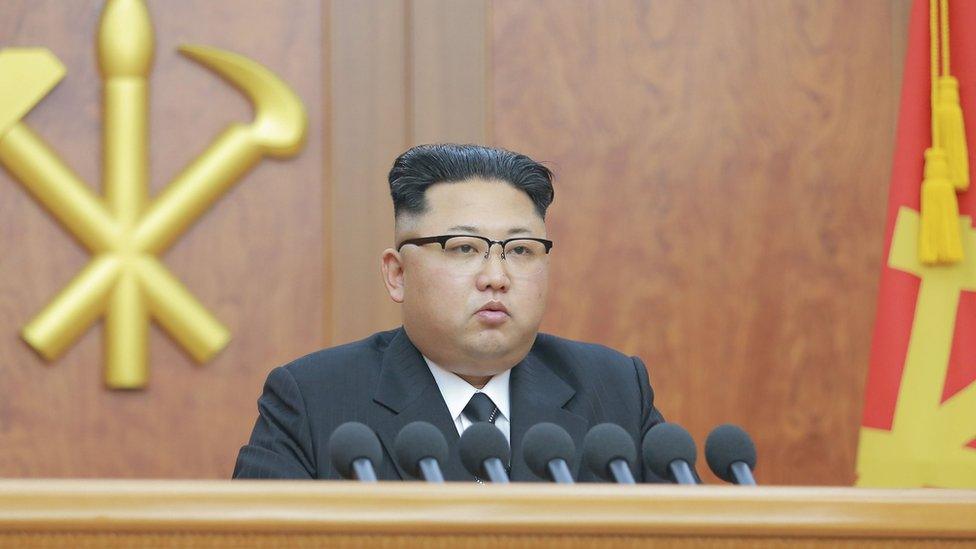
- Published19 July 2023
